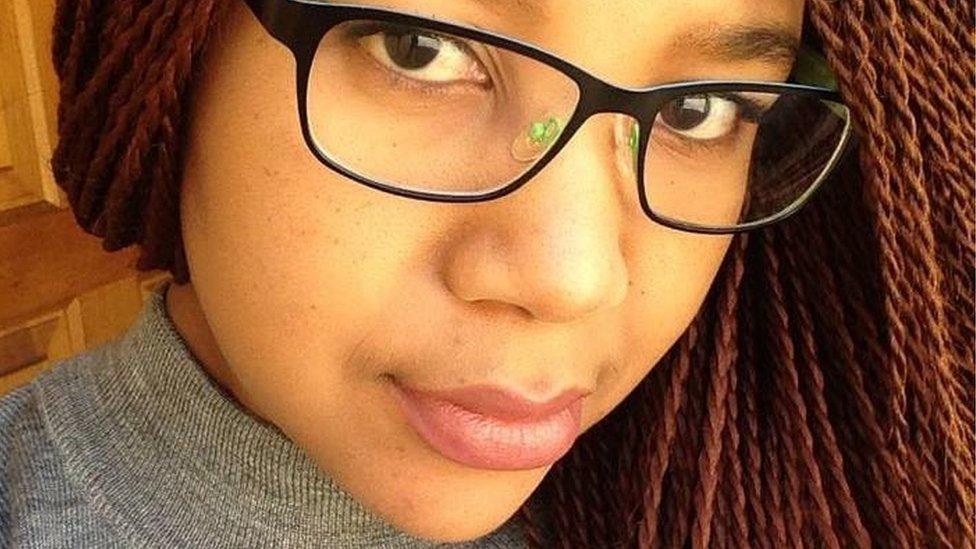The clothes shop that got rid of size labels
- Published
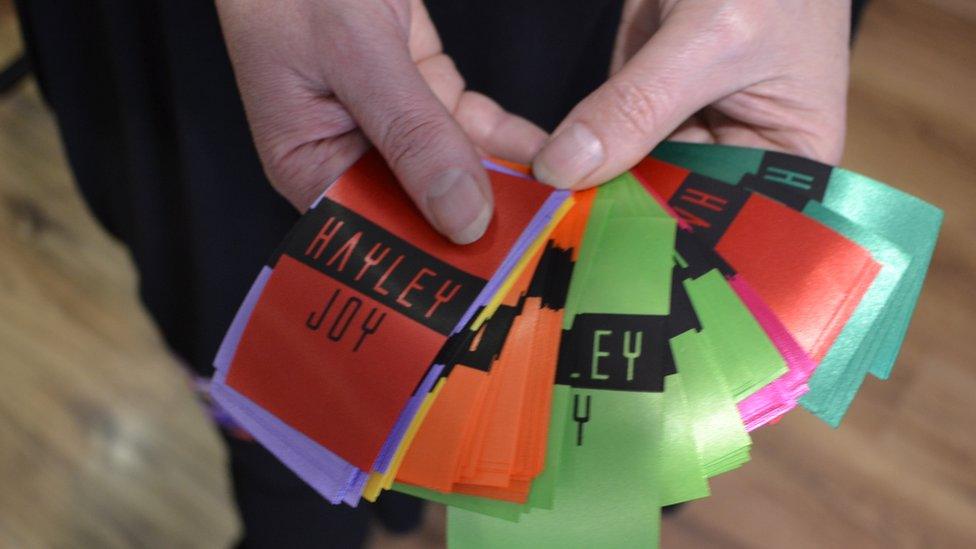
The clothes shop replaces numbers with colours to denote size
When plus-size customers asked a South African shop to rip out the labels on its clothes to save their embarrassment, the shop-owner went one further and decided to scrap numbered sizes all together. Will this do anything to stop body shaming?
South African fashion designer Hayley Joy-Weinberg was asked to cut off the label on her clothes by numerous customers who had asked their husbands to collect their orders.
"It was a problem to them that someone else would see what size they wore and I completely understood it.
"There is a stigma against big woman," she told me.
So Ms Weinberg has replaced standard labels at her Johannesburg boutique with colour-coded tags to make shopping a less stressful experience for her plus-size clients.
"It felt so good to say you are a yellow, or a pink, or a green," she told me.
She took it a step further by adding shapes.
So, instead of referring to their size as a 2XL, a customer asks for a pink heart.
Her shop stocks clothes ranging from small to 7XL - most shops in South Africa only go as far as 3XL.
"Normally I'm a size 38-40 but here at this store I'm a green. It feels to good to say that," customer Puleng Kwena told me.

What's in a label?
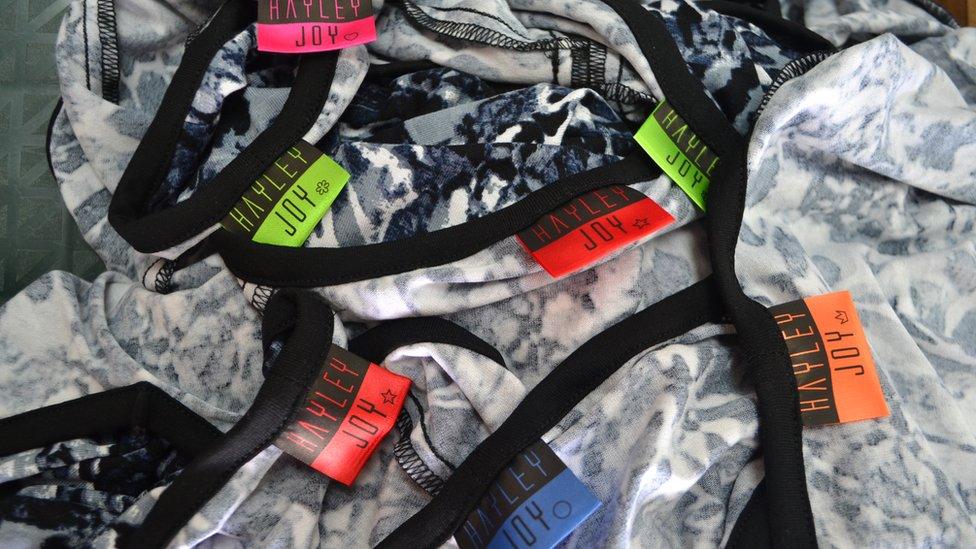
Small: Lilac square
Medium: Yellow diamond
Large: Orange crown
XL: Lime-green flower
2XL: Pink heart
3XL: Turquoise bow
4XL: Red star
5XL: Green triangle
6XL: Blue circle
7XL: Purple arrow

"It can be embarrassing to say I'm XXL, you worry about what people are going to say. I don't have to worry about that any more," agreed Elizabeth Patterson.
She told me that "when you're a bigger woman you don't actually want to be displaying what size you are".
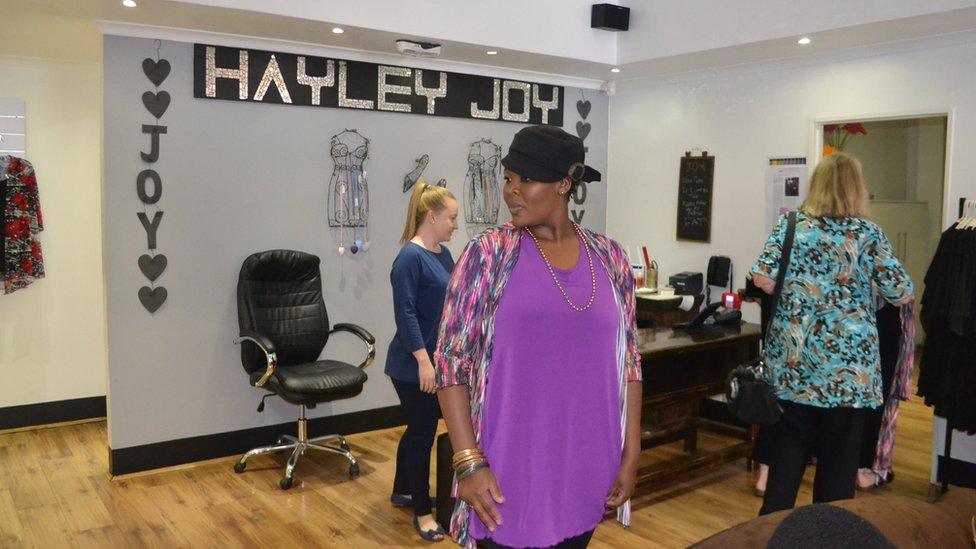
Puleng Kwena says it took her years to find clothes that flattered her curves
But not everyone is a fan of replacing dress sizes.
Another plus-size designer Ouma Tema told me the labels don't deal with the underlying problem - the shame people feel for being bigger.
"Instead of changing a label to something else, I'd much rather we found ways to make women accept their bodies in whatever size they come in. If you're a 2XL, you're a 2XL - embrace it, then celebrate it".
Ms Weinberg says this embarrassment Ms Tema speaks of is not helped by the choices larger women are given in the shops.
"We don't want clothes that make us look like a tent.
"We want clothes that are made with respect for my body as a big woman".
Ms Weinberg gained a lot of weight after quitting smoking.
She was studying fashion at the time and her new body shape inspired her to create garments that she and women like her could wear.
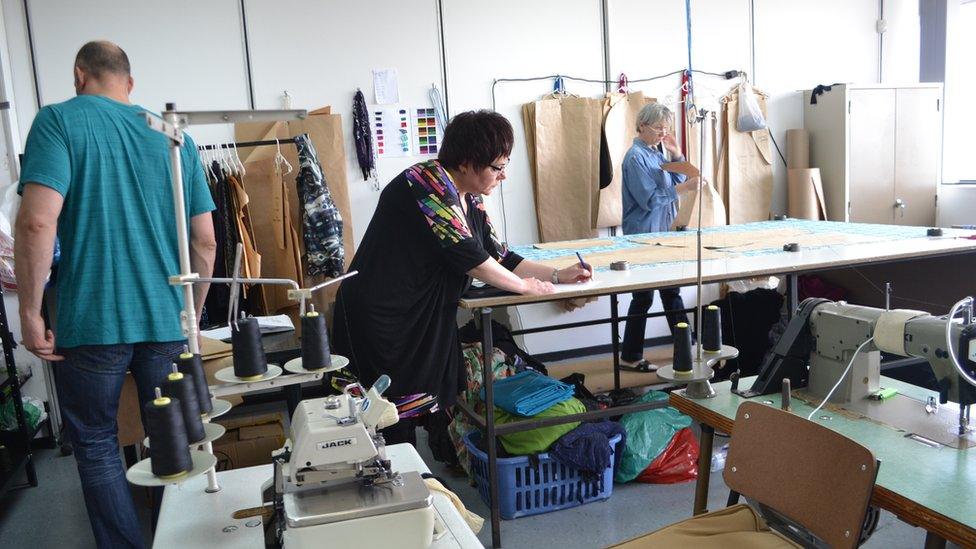
Hayley Joy Weinberg has her own production studio where the garments are made
But more than 30 years later, she says the industry hasn't changed much in its contempt for larger women.
"No-one knows what to do about the fat women.
"It's like fat women don't exist when we all they know do," says Ms Weinberg.
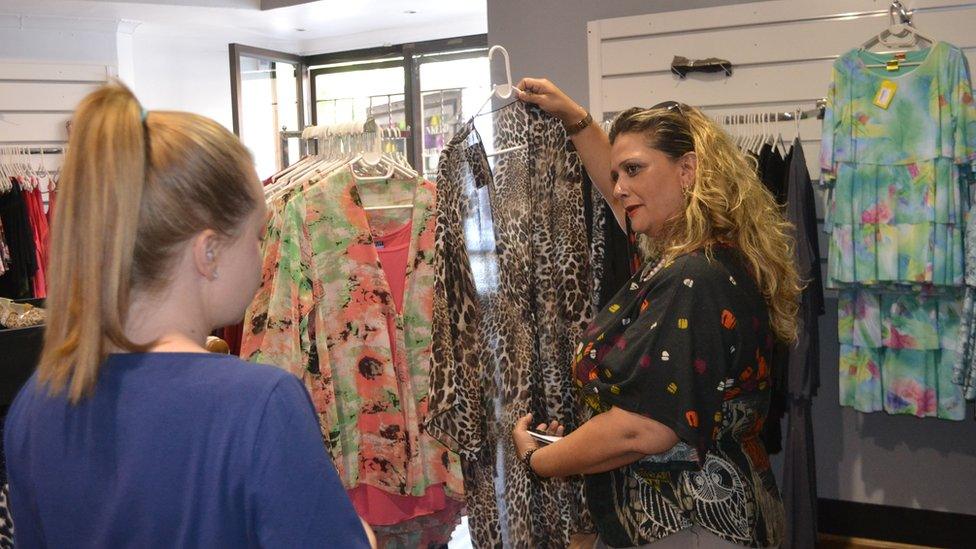
It is likely there will be an increased demand for bigger sizes
While plus-size women may seem invisible in the fashion industry, they show up in South Africa's obesity figures.
According to the latest World Health Organization statistics, one in four South Africans are obese.
Ms Weinberg's compatriots - South African women - have the highest rates of obesity in sub-Saharan Africa, at 42%.
And experts say obesity levels are only going to increase.
This means the fashion industry will have to think even harder how to cater for the increasing numbers of larger customers.
- Published22 January 2014
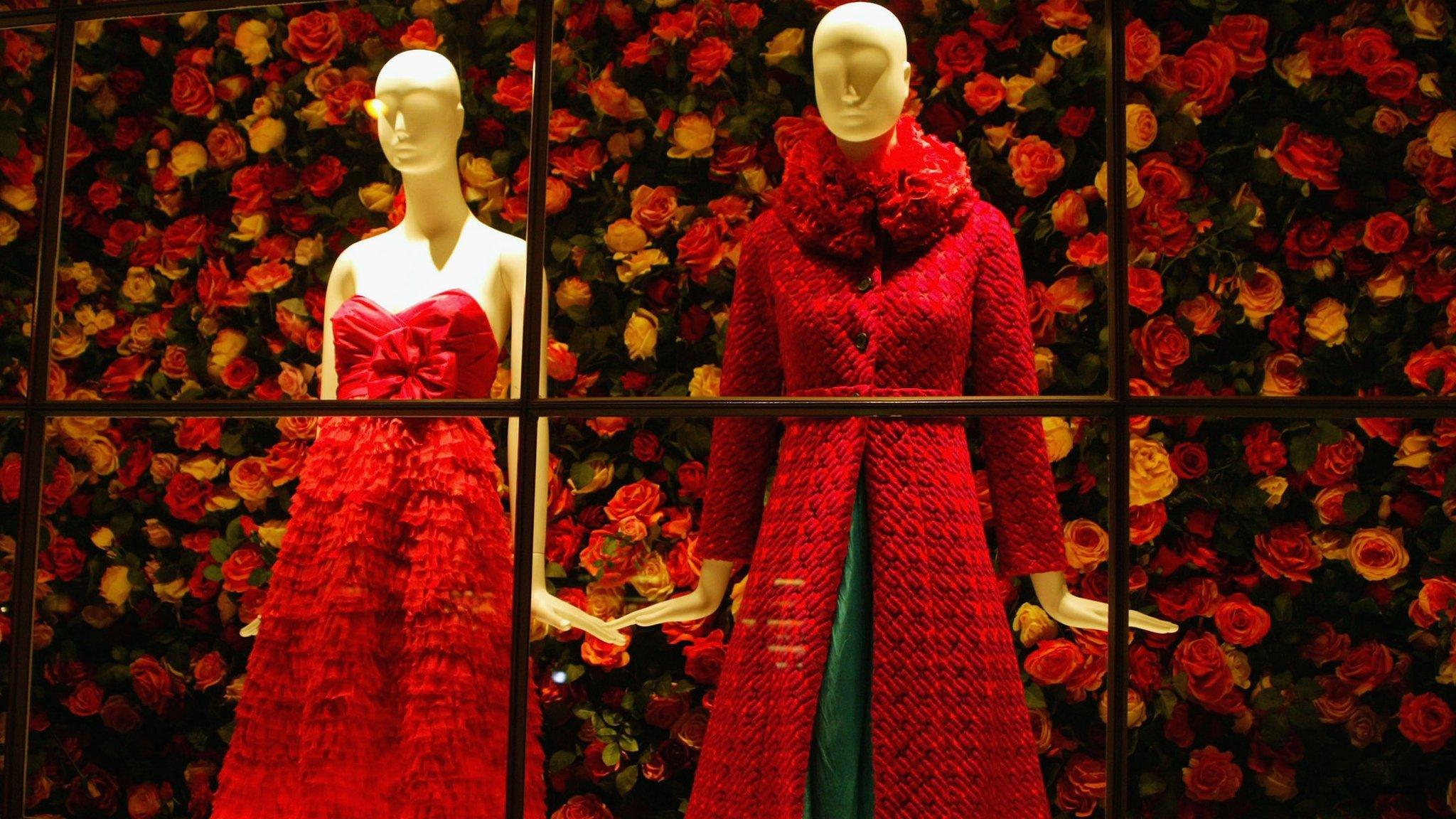
- Published14 April 2015
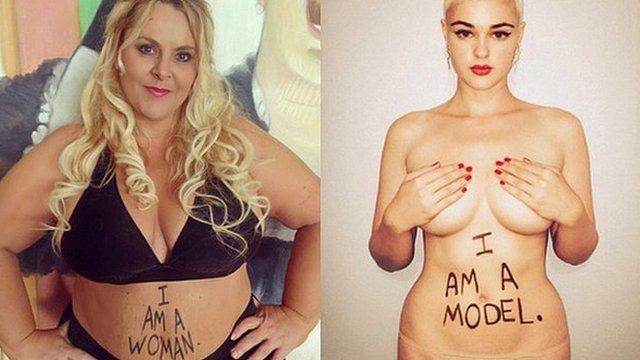
- Published15 May 2013
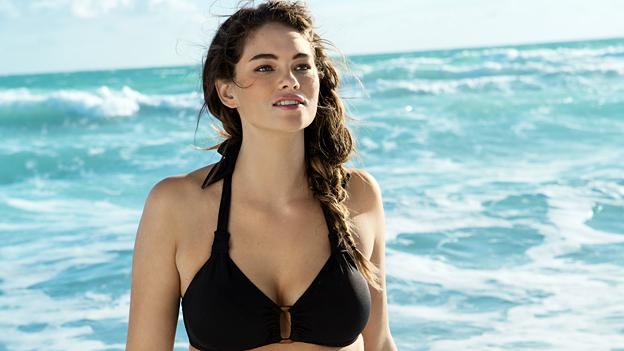
- Published30 April 2015
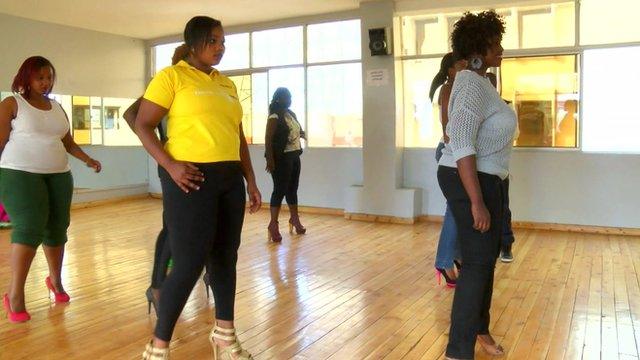
- Published26 November 2014
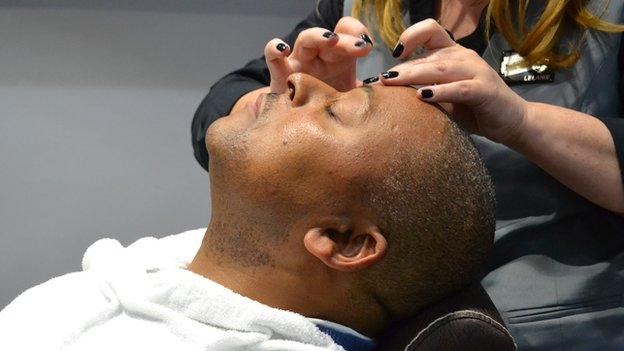
- Published22 July 2015
